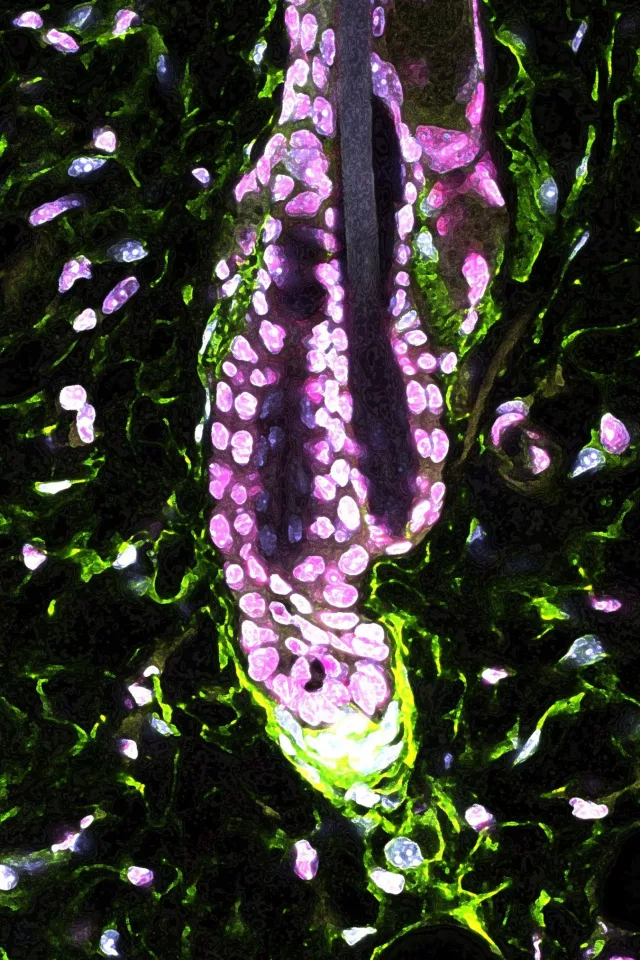Stress can affect the human body in all sorts of ways, with one Harvard study last year demonstrating how it can lead to premature graying of the hair, as just one example. The same researchers have now expanded on this with a new paper detailing how stress hormones suppress the regenerative capabilities of hair follicles, adding to our knowledge around hair loss and raising new possibilities around how it might be tackled.
The research centers on the natural cycles our hair follicles undergo, which sees them alternate between growth and resting phases that are driven by activity of the hair follicle stem cells. During the resting phase, these cells lie dormant and hair follicles are shed more easily, while the growth phase sees them spring into action to regenerate new hair. When this cycle is thrown out of balance and the stem cells spend more time in a dormant state, hair loss is the net result.
Using mouse models, the Harvard team set out to investigate how stress might shape this process. Initially, the team found that chronic stress in the mice caused their hair follicle stem cells to remain in a resting state for long periods, in which they produced no regenerative tissues. The scientists were able to replicate these effects by giving the mice a major stress hormone called corticosterone that is produced by the adrenal glands and is the equivalent to the stress hormone cortisol in humans.
“This result suggests that elevated stress hormones indeed have a negative effect on hair follicle stem cells,” says senior author Ya-Chieh Hsu. “But the real surprise came when we took out the source of the stress hormones.”
This round of experiments was designed to explore the interplay between stress, age and hair loss. As animals grow older, the hair follicle regeneration process slows because the resting phases become longer. Interestingly, the scientists found that when the stress hormones were removed from the equation, this resting phase became very short. This meant the mice were constantly entering a growth phase and regenerating hair follicles even when they grew old.
“So even the baseline level of stress hormone that’s normally circulating in the body is an important regulator of the resting phase," says Hsu. "Stress essentially just elevates this preexisting ‘adrenal gland–hair follicle axis,’ making it even more difficult for hair follicle stem cells to enter the growth phase to regenerate new hair follicles."'

Further investigations revealed that the reason for this was the way the stress hormones impact a cluster of cells beneath the hair follicles, called the dermal papilla. The researchers found that when the stress hormone levels were heightened, it prevented these cells from secreting a molecule called Gas6, which was shown to activate the hair follicle stem cells.
“Under both normal and stress conditions, adding Gas6 was sufficient to activate hair follicle stem cells that were in the resting phase and to promote hair growth,” says Sekyu Choi, the lead author of the study. “In the future, the Gas6 pathway could be exploited for its potential in activating stem cells to promote hair growth. It will also be very interesting to explore if other stress-related tissue changes are related to the stress hormone’s impact on regulating Gas6.”
The research was published in the journal Nature.
Source: Harvard University






